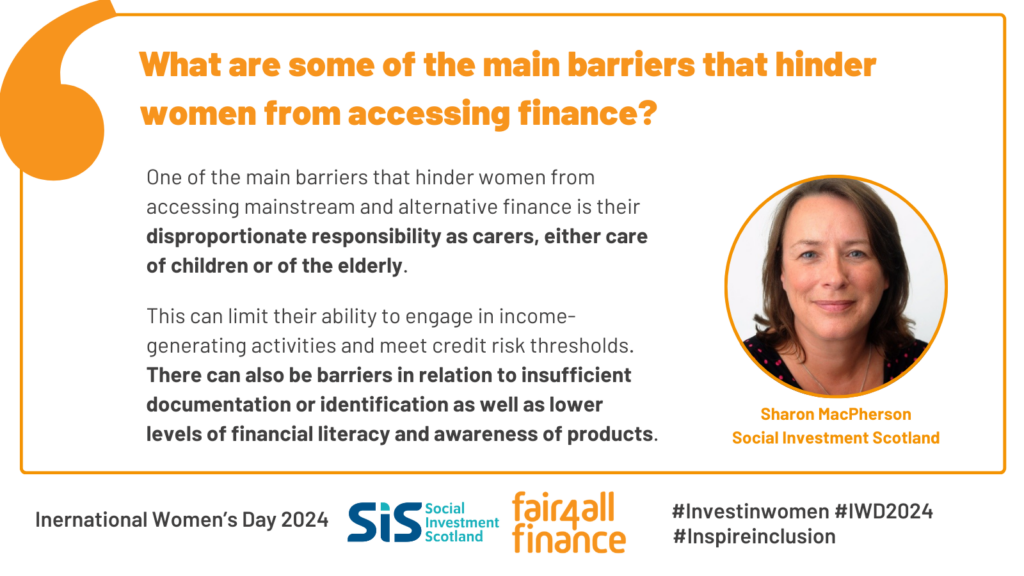Celebrating International Women’s Day – Sharon MacPherson from Social Investment Scotland

To celebrate International Women’s Day, we’ve been speaking to some of the many inspirational women leaders across the community finance sector. In the first instalment of our series we hear from Sharon MacPherson, an associate at Social Investment Scotland and a member of Financial Inclusion for Scotland, about how we can increase the representation of women in leadership roles across financial services, and why more needs to be done to address the barriers that hinder women from accessing mainstream and alternative finance.
What motivated you to aspire to a leadership role and empowered you to achieve your career ambitions?
My main motivation was a passion for making a difference and driving positive change in financial inclusion. This was coupled with the opportunity for personal growth, learning new skills and challenging myself. What was equally important was my hope to serve as a role model to my granddaughter and inspire her to pursue her ambitions. I was empowered by being in an environment where I was supported by friends, family and colleagues who encouraged me to follow my aspirations.
How can we increase the representation of women in leadership roles within financial services and ensure the industry becomes inclusive for all?
There has been a welcome increase in representation in leadership roles within financial services but we need to do more to ensure financial institutions continue to prioritise diversity and inclusion. Offering flexible working arrangements, equality of pay and providing bespoke mentorship and development programmes aimed specifically at women are areas that I think are crucial if we want to foster a culture of inclusivity and diversity.
What does this year’s theme of ‘Inspiring Inclusion’ mean to you?
The theme of ‘inspiring inclusion’ for me means fostering a culture where everyone feels valued and traditional gender norms are challenged.
What are some of the main barriers that hinder women from accessing mainstream and alternative finance?
One of the main barriers that hinder women from accessing mainstream and alternative finance is their disproportionate responsibility as carers, either care of children or of the elderly. This can limit their ability to engage in income-generating activities and meet credit risk thresholds. There can also be barriers in relation to insufficient documentation or identification as well as lower levels of financial literacy and awareness of products.
How can credit unions/community finance help improve the financial wellbeing and independence of women?
Community finance can help improve the financial wellbeing and independence of women by firstly ensuring they have inclusive policies, practices and procedures that promote equal opportunities and remove barriers to participation. Training staff on gender sensitivity and unconscious bias/discrimination can help them become more inclusive. Developing products and services that are gender sensitive by baking into the design the specific needs of women and preferences of women will promote inclusion and address women’s unique financial goals and constraints.
What impact can credit unions/community finance have on improving the financial lives of women in vulnerable circumstances?
Community finance has a significant impact on improving the lives of women in vulnerable circumstances by increasing access to financial services, empowering women to take control of their finance and through income maximisation and budgeting advice.
We know from our latest segmentation research that women are at a greater risk of financial exclusion because of gender specific barriers, which can heighten cost-of-living pressures and weaken financial resilience – you can read more about these barriers to inclusion here.